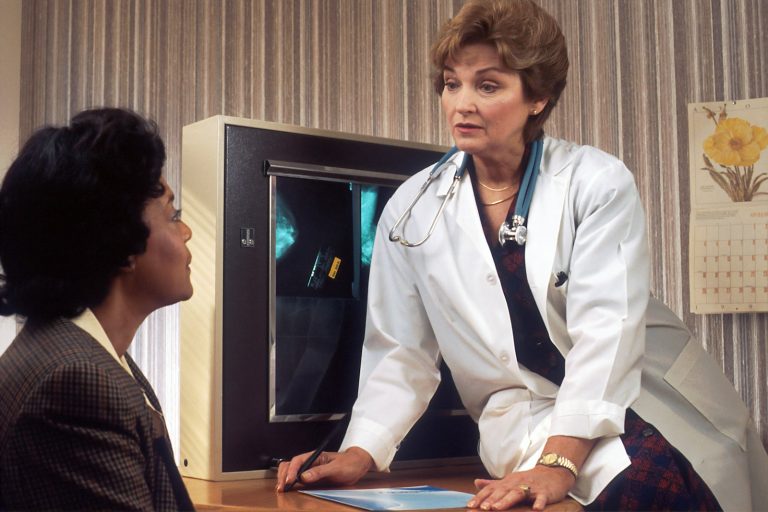Cancer misdiagnosis can be devastating for both patients and their families, leading to delayed treatment, incorrect therapies, and diminished health outcomes. Navigating the complex legal landscape after such a misdiagnosis requires specialized knowledge and expertise. This is where an NJ cancer misdiagnosis lawyer can provide invaluable support, guiding you through the legal process, and you receive the compensation you deserve. It’s best to seek legal advice to address the medical errors and hold responsible parties accountable.
Understanding Cancer Misdiagnosis
Cancer misdiagnosis occurs when a healthcare provider inaccurately identifies a patient’s condition, either mistaking cancer for another ailment or failing to detect it altogether. This serious error can have profound consequences, including delayed treatment, unnecessary medical procedures, and increased patient suffering. Misdiagnoses can stem from various factors, such as inadequate testing, misinterpretation of results, or failure to recognize symptoms. Understanding the underlying causes of cancer misdiagnosis is essential to ensure early detection.
Legal Grounds for Cancer Misdiagnosis Claims
To pursue a legal claim for cancer misdiagnosis, it is crucial to establish the presence of medical negligence or malpractice. It shows that the healthcare provider failed to meet the care that leads to harm. Key elements to substantiate a claim include proving that a doctor-patient relationship existed, the provider breached the duty of care through misdiagnosis, and this breach directly caused harm to the patient. Establishing these legal grounds is essential for obtaining compensation for damages. In some cases, punitive damages hold the negligent party accountable.
Steps to Take if You Suspect a Misdiagnosis
If you suspect a cancer misdiagnosis, taking prompt and informed steps is vital to protect your health and legal rights. First, seek a second opinion from a qualified medical professional to confirm the accuracy of the initial diagnosis, ensuring you receive appropriate and timely treatment. Document all medical records, diagnostic tests, and communication with healthcare providers, as these will be crucial in assessing the validity of your claim. Acting swiftly safeguards your health and strengthens your position in seeking justice and fair compensation for any harm suffered due to the misdiagnosis.
Legal Process for Filing a Claim
Filing a legal claim for cancer misdiagnosis involves several steps that are meticulously followed to ensure a strong case. Initially, you should consult an experienced medical malpractice attorney who can evaluate the situation and provide expert legal guidance. The attorney will typically conduct an initial investigation, gathering all pertinent medical records, diagnostic reports, and witness testimonies. The drafting and filing of a formal complaint follows this. During the litigation process, both parties will engage in discovery, exchanging evidence and information pertinent to the case. Settlement negotiations may occur at any stage, potentially leading to an out-of-court resolution. If a settlement is not reached, the case proceeds to trial.
Proving Your Case
Proving your case in a cancer misdiagnosis claim requires compelling evidence that demonstrates that the healthcare provider’s negligence directly caused harm. This entails securing expert testimony from medical professionals who can substantiate that the misdiagnosis deviated from accepted medical standards and resulted in avoidable damage to the patient. The plaintiff should establish a causal link between the misdiagnosis and the injuries sustained, showing that appropriate care would have led to a different outcome. Building a strong, evidence-backed argument is crucial to sway the court in favor of the affected patient, ensuring accountability and fair compensation.
Potential Compensation
Patients who successfully pursue a cancer misdiagnosis claim may be entitled to various forms of compensation to address the harm suffered. This can include economic damages and compensation for loss of earning capacity if the patient cannot work. Non-economic damages may also be awarded for the pain and other consequences caused by the misdiagnosis. In certain cases, punitive damages may be granted to penalize particularly egregious negligence and deter similar future conduct by healthcare providers. Such compensation aims to restore the patient to the position they would have been in had the misdiagnosis not occurred and to provide some measure of justice and relief for their ordeal.
Statute of Limitations
The statute of limitations claim varies by jurisdiction. It outlines the period within which a patient must initiate legal action following the discovery of the misdiagnosis. This timeframe is crucial for ensuring the timely pursuit of justice, as failing to file within the designated period typically results in the forfeiture of the right to seek compensation. Patients must be aware of their state’s specific limitations, which may range from one to several years, and recognize that some states also incorporate a “discovery rule” that extends the deadline based on when the misdiagnosis was reasonably discovered. Consulting with a medical malpractice attorney can clarify these deadlines and help ensure that claims are filed promptly and accurately within the legal timeframe.
Final Thoughts
Navigating the aftermath of a cancer misdiagnosis can be a daunting and distressing experience for patients and their families. Understanding the legal grounds, taking prompt and informed action, and following the legal process with the help of an experienced NJ cancer misdiagnosis lawyer are crucial steps in securing justice and fair compensation. By meticulously proving the case and recognizing the potential for various forms of compensation, affected patients can hold negligent healthcare providers accountable. The goal is to obtain the financial and emotional relief necessary to move forward.



0 Comments